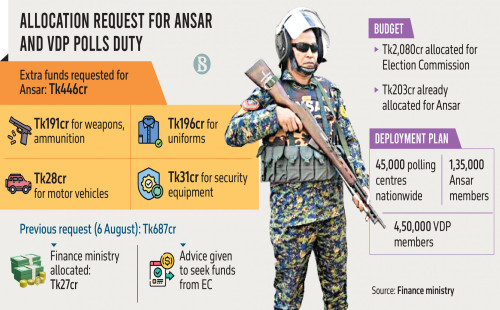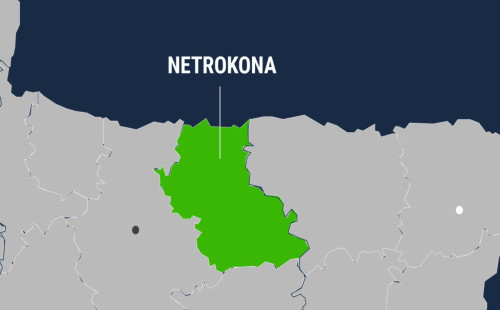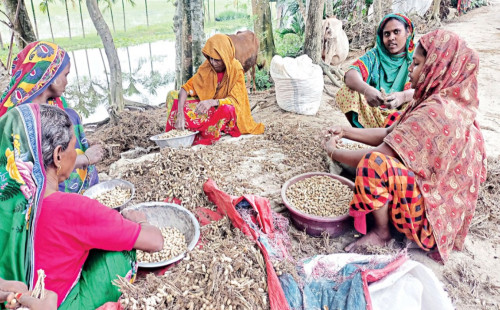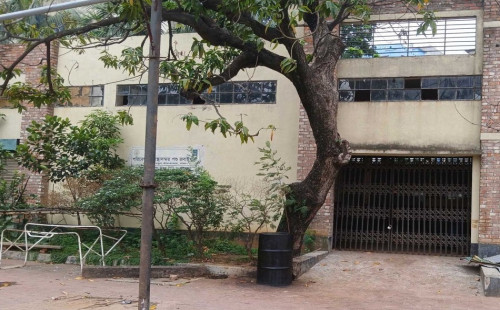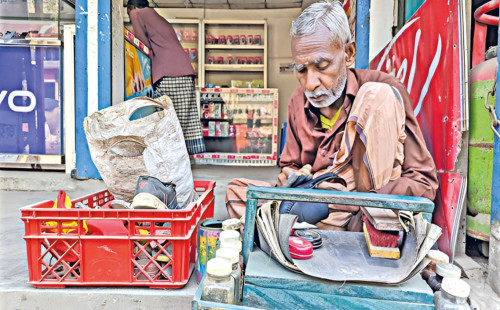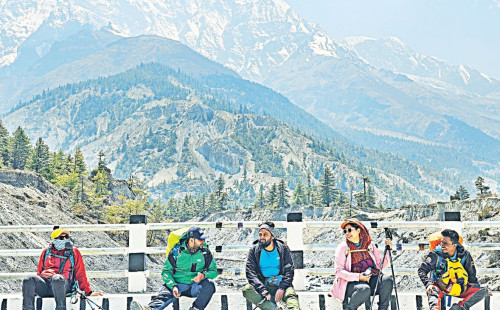Fugitives can’t run in national elections

The Election
Commission has proposed stricter amendments to the election law, including a
provision barring fugitives from contesting national polls.
The
EC sent 46 proposed amendments to the Representation of the People Order (RPO),
1972, to the law ministry for vetting on Tuesday. The RPO is the law under
which the commission regulates national elections.
Under the new proposal, the EC has
outlined several major changes, including recognising the armed forces as law
enforcers and granting itself the authority to cancel a constituency's election
if significant irregularities are found. The proposal also reintroduces the
"No Vote" option in constituencies with only one contestant. If
approved, it will allow the EC to hold a fresh election if "No Vote"
get the majority votes.
Election
Commissioner Brig Gen (retd) Abul Fazal Md Sanaullah briefed reporters on the
proposed changes to the RPO yesterday.
When
asked why the EC is now taking steps to disqualify fugitives, Sanaullah said:
"The Election Commission has held discussions with the National Consensus
Commission. The Election Commission is now satisfied and feels that including
such a provision will be beneficial.
"In
case of misuse, the provision could be amended again if necessary."
In
February, the Electoral Reform Commission recommended preventing individuals
accused of serious human rights violations from participating in elections if
the International Crimes Tribunal accepts the charges.
The
commission identified extrajudicial killings, enforced disappearances, inhumane
torture, and attacks on journalists or human rights activists as severe human
rights violations. It also recommended making individuals involved in money
laundering ineligible to contest polls if the Anti-Corruption Commission
accepts the charges.
The
Election Commission had opposed the proposal earlier, arguing that such a
provision could be misused and that political consensus was necessary.
At
present, anyone convicted of a crime involving moral turpitude and sentenced to
at least two years' imprisonment is barred from contesting elections unless
five years have passed since their release. Individuals convicted under the
Bangladesh Collaborators (Special Tribunals) Order, 1972, are also deemed
ineligible.
Regarding
the participation of leaders from banned political parties in the upcoming
national election, Sanaullah said, "If a political party is prohibited
from conducting activities, its leaders will not be able to contest the
election under that party's name. As for independent candidates, time will tell
how they will participate."
However,
the proposal has drawn mixed reactions from politicians and experts.
Justice
MA Matin, a retired judge of the Appellate Division of the Supreme Court, said
a fugitive must first surrender to the court to seek legal protection.
Therefore, disqualifying fugitives from contesting elections would not be
inconsistent with the law.
Communist
Party of Bangladesh General Secretary Ruhin Hossain Prince said it is the right
of a citizen to contest polls until proven guilty. "I believe it is
entirely unethical to enact laws considering specific individuals or groups.
However, those who are convicted should not be allowed to take part in
polls."
Revolutionary
Workers Party of Bangladesh General Secretary Saiful Huq said, "It seems
to me that this decision has been made based on political considerations. It
will not be sustainable and is certainly to be challenged in court."
Prince
and Saiful said that the "No Vote" option should be on the ballot in
all constituencies.
PROPOSED
CHANGES
"The
commission will be able to take action against candidates who submit false
information in their affidavits," Sanaullah told reporters.
"The
Election Commission will be able to take action following the investigation.
Even if the candidate is elected, the individual concerned may be recalled from
office at any time during their five-year term," he added.
EC
officials said the reintroduction of the "No Vote" option will ensure
that nobody is elected uncontested. The option was last available in the 2008
polls, when about 3,82,000 voters chose it.
During
the one-sided 2014 election, 153 of 300 lawmakers were elected unopposed, as
most of the opposition, including the BNP, boycotted the election.
Earlier,
49 candidates nominated by the then-ruling BNP were elected uncontested in the
February 15, 1996, election, which was boycotted by the Awami League, Jatiya
Party, Jamaat-e-Islami, and other parties.
In
the event of a tie between two candidates, a re-election will be held. The
previous provision of deciding tied results was by lottery.
The
amendment also recognised the army, navy, air force, and coast guard as law
enforcement agencies during elections. Officials said that once armed forces
members are defined as law enforcers, the EC will not need any additional order
to deploy them for election duties. Members of the forces will also have the
power to arrest offenders.
Provisions
have been included in the proposal to take action against candidates, political
parties, and organisations if they use artificial intelligence or similar
technologies to spread misinformation or defame someone.
The
EC also proposed that the president and members of the managing committee of
any educational institution located in the relevant constituency be
disqualified from running in national elections.
Candidates
will be required to submit details of their sources of income, at home and
abroad, along with a statement of assets and liabilities for themselves and
their dependents.
It
has also proposed making it mandatory to submit a copy of the income tax return
along with the nomination paper.
The
commission proposed raising the nomination deposit to Tk 50,000, up from the
current Tk 20,000.
Moreover,
candidates will be allowed to spend up to Tk 10 per voter, with a maximum
ceiling of Tk 25 lakh for electioneering.
According
to the new proposal, political parties receiving donations above Tk 5,000 will
be required to inform the commission and the information would be upload to the
EC websites.
Other
key proposals include: candidates contesting under an alliance must use the
symbol of their own party; nomination papers cannot be submitted online and
must be filed in person; and polling agents of a candidate must be residents of
the same constituency.



